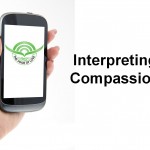Welcome to the blog for The Voice of Love, dedicated to trauma-informed interpreting.
The blog has a special focus: interpreting for survivors of torture, war trauma and sexual violence. It also addresses interpreting and gender-based violence. The blog will explore the intimate connections between language, culture and trauma. It will share tips, resources and strategies to support trauma-informed interpreting.
This blog is written by “VOL” friends and board members who share a passion for this beautiful work. If you have stories, research or articles to share, please contact us at vol@voice-of-love.org.
My name is Carola E. Green, and I have been an English Spanish interpreter for 20+ years in both legal and healthcare settings. As my colleagues know, one of the tenets of professional interpreting is ongoing professional development. In most cases, though, we think of taking classes or looking for resources to improve our simultaneous interpreting, enhance our vocabulary and terminology or improve memory skills.
In other words, we tend to focus on professional development for our “message transfer skills.” We don’t always think of seeking resources or taking classes that can teach us better coping skills to help protect us emotionally. We don’t consider the level of stress or emotional distress we can experience while we interpret. We don’t think of getting help to even understand what trauma is.
The fact is, regardless of whether the setting is legal, medical or mental health, there are always interpreting sessions that can push our emotional buttons. It would help us a lot to know how to manage these sessions effectively while still maintaining accuracy and professionalism. Not an easy task.
As professional interpreters, we rely on our Codes of Ethics. Here in the United States, that usually means the NCIHC National Code of Ethics for Interpreters in Health Care or the Standards for Performance and Professional Responsibility for Contract Court Interpreters in the Federal Courts, or any relevant State Court Code of Professional Responsibilities for Interpreters. Still, there are interpreting sessions that can really challenge our ability to maintain professional distance.
Most of us who interpret can relate all too well to the times we have to struggle with not getting too emotional during the session. Many of us have had firsthand experience with the emotional and even physical trauma of the parties we interpret for. What do we do, then?
First, the fact that we understand our role as the interpreter doesn’t mean we can’t accept our vulnerability as human beings. I can still remember the first time I had to interpret during a rape trial and vividly recall thinking, “I have done exactly the same things this woman is describing, that could have happened to ME!” Ideally, as competent professionals we think we should know how to handle these emotional situations without any lasting consequences to our emotional wellbeing and without putting the outcome of the interpreting session at risk.
Realistically, though, we also know that interpreting in highly emotional settings can take an immense toll on our professional life that spills over onto our personal life. We are exposing ourselves to the risk of secondary trauma, if not outright triggering.
That reality and that risk means that it’s essential we seek setting-specific training. I would personally urge every interpreter to consider how an organization like The Voice of Love can become an invaluable resource. It isn’t just a question of getting relevant information. We also need specialized training.
Becoming a trauma-informed interpreter can actually enhance our ability to interpret effectively in highly charged emotional settings. As one of the authors of Healing Voices, a five-day training on how to interpret for survivors of torture, war trauma and sexual violence, I know what specializing training does for interpreters. It helps us do our job in the best possible way, no matter how intense the session gets. The skills we acquire can help us in any setting, not just when we interpret for trauma survivors in mental health, medical or legal interpreting.
The way I see it, being passionate about interpreting means we need to be willing to invest just as much into the tools and resources that support our emotional wellbeing as well as we would in dictionaries and any other tools used by professional interpreters. We matter. We are worth it. We need support.
The Voice of Love (VOL) is a 501(c)(3) registered charity based in the United States.
Founded in 2011, VOL represents the only nonprofit in the world dedicated exclusively to developing training for trauma-informed interpreting, with a focus on interpreting for survivors of torture, war trauma and sexual violence.
For more information, please visit our website at www.voice-of-love.org. If you enjoy this blog, please consider subscribing to our monthly newsletter by signing up at www.voice-of-love.org. You can also donate on the website: no contribution is too small, and every donation helps this amazing work!
The views expressed in this blog are those of the author and do not necessarily reflect the views of VOL.






5 Comments
Hal Sillers says:
February 24, 2015 at 5:03 PM
Well said, Carola.
Regards,
Hal
Carola says:
March 6, 2015 at 12:11 PM
Hola Hal, thank you. Please know that we (VOL) encourage and welcome information and resources related to our mission and our work from interpreters in the field. Feel free to share any thoughts and please share our site with others.
Saludos
Carola
replica love cartier bracelet says:
March 24, 2015 at 5:30 PM
That story does sound familiar, but I couldn’t tell you where I read it or whether it was actual or hypothetical (but based on existing law).
Carmella says:
March 25, 2015 at 1:16 AM
You should do some search engine optimization for this blog.
I found this post on 18 place in google’s search results.
You can reach goolge’s top10 easily and increase traffic many times.
I know what can help you, search in google for:
Popolton’s SEO improve
google translate says:
April 10, 2015 at 2:32 AM
Heya i’m for the primary time here. I came across this board and I find It truly useful
& it helped me out a lot. I’m hoping to offer something again and help others such as you aided me.